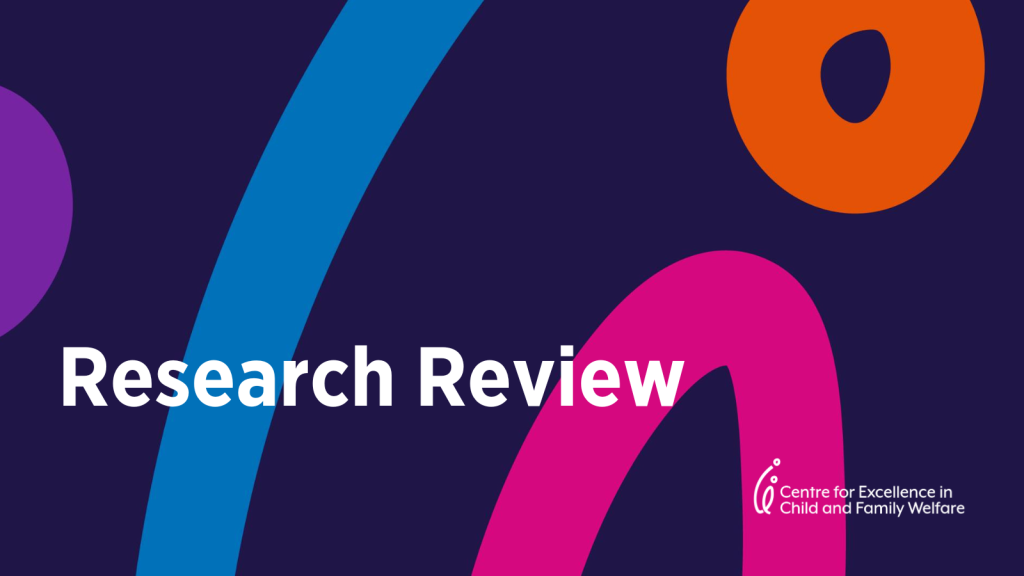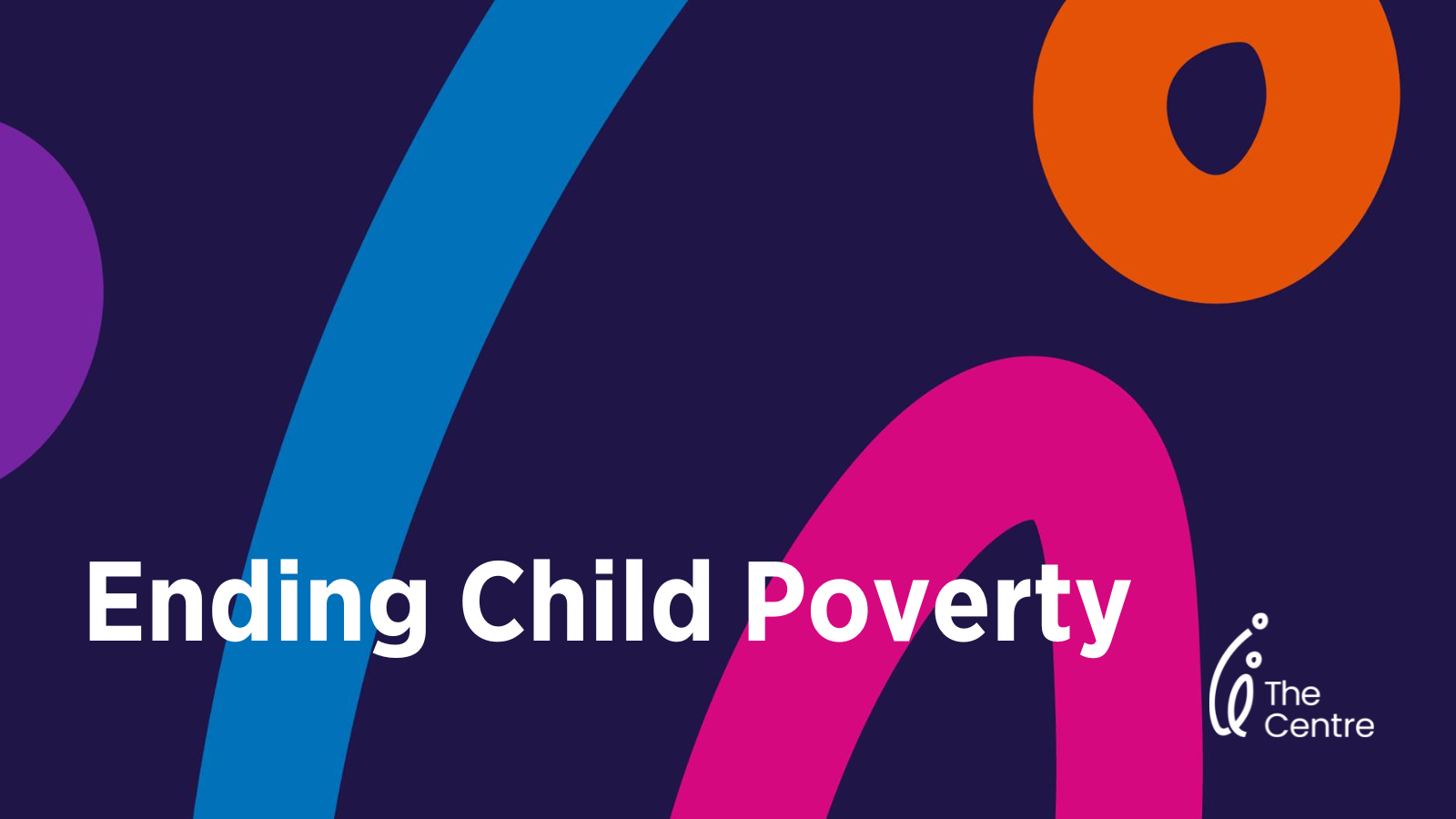The Research Review delivers the latest research relevant to the child and family services sector direct to your inbox.
In this month’s Research Review, we highlight two reports which cast light on interconnecting challenges affecting children and families in Australia and globally – the intersection between socio-economic disadvantage and health outcomes. Other research papers focus on mental health, family violence, climate change, child wellbeing and much more.
To receive monthly research updates to your inbox, subscribe here.
Children and Young People’s Wellbeing
Best interests and targeting: Implementing the Privacy Act Review to advance children’s rights
Reset Australia’s paper delves into the concept of ‘targeting’ in digital environments concerning children’s rights. It identifies six clusters of children’s rights which intersect with targeting, including privacy, access to information, protection from harm, play and leisure, freedoms, and meaningful participation. The paper proposes a ‘best interests assessment’ to navigate these intersections and suggests integrating such assessments into the Privacy Act to promote compliance and better regulation. The authors propose reform that prohibits targeting children unless it aligns with their best interests, advocating for a child-centric approach to regulation.
Read the full report here
Transforming early childhood: Narrowing the gap between children from lower and higher-income families
This paper, prepared by Nesta, addresses socio-economic inequalities in early childhood and proposes a comprehensive plan to create an equitable system for all children in England, regardless of their family’s financial status. The authors present nine recommendations to narrow the gap in school readiness between low-income children and their more affluent peers. Key suggestions include improving pay and conditions for early years staff, enhancing workforce training, and establishing children’s campuses offering family support services and early education.
Read the full report here
Growing stronger together: Insights into healthy social development from Lambeth and Southwark
This new research commissioned by Impact on Urban Health in the UK analyses the factors that contribute to children and young people’s healthy emotional and social development, alongside the risks for childhood behavioural challenges. Findings highlight the limited recognition of the systemic inequalities and socioeconomic barriers faced by families, which may be contributing to developmental challenges children are experiencing. The report calls for earlier preventative action to improve the mental health outcomes of all children.
Read the full report here
Place Matters: The environment we create shapes the foundations of healthy development
The latest working paper from the National Scientific Council on the Developing Child highlights how the built and natural environments – and the systemic factors that shape those environments – affect children’s development and lifelong health. The report emphasises the interconnectedness of built and natural environments with social factors which shape children’s wellbeing from before birth. The authors advocate for broader policy approaches beyond the traditional early childhood sector to create safe environments for all children through innovative policymaking and community engagement.
Read the full paper here
Hear us, act now: Our collective experience project report
This report conducted by the Australian Childhood Foundation presents findings from ‘Emma’s Project’, now renamed ‘Our Collective Experience Project’, which emphasises survivors’ insights in preventing childhood sexual abuse. It calls for mandated training on child sexual abuse for those with Working with Children Checks, highlighting the need for national consistency and involvement of government bodies and professional organisations to help prevent childhood sexual abuse.
Read the full report here
Family and Community
Review of the national agreement on Closing the Gap: Study report
The Productivity Commission’s review of the National Agreement on Closing the Gap reveals government shortcomings in fulfilling commitments. Four key recommendations aim to drive progress: sharing power, supporting Indigenous data sovereignty, reforming government systems and culture, and enhancing accountability. The report highlights the need for fundamental reform in government structures and operations to better engage with Indigenous communities, advocating for a shift in evidence-informed strategies across all departments and jurisdictions.
Read the full report here
On whose account? Government spending on housing
This paper examines Australia’s federal housing budget, exploring direct support to households and housing service providers and tax concessions to property owners. The paper examines federal housing expenditure, critiques current accounting methods, traces historical spending trends across programs, and evaluates how these shifts impact fund distribution among income quintiles, probing their contribution to inequality.
Read the full report here
A comparison of disadvantage and urban heat island effect in Melbourne, Australia
This report conducted by the Victorian Council of Social Services (VCOSS) analyses the correlation between socio-economic disadvantage and urban heat island effect (UHI) in metropolitan Melbourne. It reveals a strong correlation between socio-economic disadvantage and urban heat, particularly noting associations between low household income and higher UHI. Additionally, it highlights a significant correlation between household income levels and UHI, indicating that higher-income areas experience lower urban heat. The findings call for policymakers to target interventions to address urban heat in areas with high levels of disadvantage and UHI.
Read the full report here
Factors, dynamics and effects of isolation for older people: An exploratory study
This exploratory study conducted by the Australian Institute of Family Studies (AIFS) reveals significant impacts on older people’s well-being due to factors around health challenges and social stigma. It highlights the need for improved service accessibility, particularly during the COVID-19 pandemic, and suggests strategies such as reframing perceptions of ageing and enhancing community-level support networks. Recommendations include improving resources like the My Aged Care portal and increasing funding for general practitioners.
Read the full report here
How police body-worn cameras (BWC) can facilitate misidentification in domestic and family violence responses
Informed by a national survey of 119 victim survivors, this paper by the Australian Institute of Criminology explores two key concerns relating to the potential consequences of BWC footage and how it might facilitate misidentification of the primary aggressor. The paper highlights the need for greater awareness of perpetrator strategies and presentations, recommending these tactics of abuse and control be incorporated into police education programs across all jurisdictions in Australia.
Read the full paper here
Education
The reading guarantee: How to give every child the best chance of success
This report conducted by the Grattan Institute highlights the urgency of addressing reading challenges among students, emphasising the need to move away from ineffective, outdated teaching methods. To improve reading proficiency for all students, the report calls for a six-step ‘Reading Guarantee,’ urging state and territory governments and school leaders to commit to specific actions such as providing evidence-based reading guidelines, access to quality curriculum materials, and universal screening of reading skills.
Read the full report here
Australian universities accord: Final report
The review on Australia’s higher education system calls for significant reform, emphasising the need for collaboration across all levels of education to address future skills challenges. It proposes targets, including increasing tertiary attainment rates and the number of university-educated Australians by 2050, alongside substantial growth in vocational education and training (VET). The review calls for a stronger connection between higher education and VET, recognising these as integral parts of the same system. To achieve these goals, the review stresses the importance of lifelong learning opportunities and closer collaboration between sectors, highlighting the need for substantial growth and synergy between higher education and VET.
Read the full report here
Ending the capital funding divide in Australia’s schools
This report conducted by the Australian Education Union highlights the Commonwealth government’s shortcomings over the past decade to ensure adequate resources for Australia’s public schools, particularly in terms of infrastructure and learning environments. It outlines how successive Coalition governments since 2013 have shifted responsibility for capital investment to the states, while capital funding programs often exclude public schools intentionally. This, coupled with funding settings that prioritise private schools, has left the majority of Australia’s public schools in urgent need of capital improvements and investment to accommodate future student growth.
Read the full report here
Audits, Inquiries and Investigations
The issue of increasing disruption in Australian school classrooms: Final report
The 2022 Programme for International Student Assessment (PISA) results revealed concerning trends in Australian classrooms, reflecting declining student behaviour, engagement, and academic performance. Despite efforts to address these issues, the survey indicates a steady decrease in student proficiency across mathematics, science, and reading domains, with only around half of Australian students meeting the National Proficient Standard. These findings echo recent NAPLAN results, emphasising the urgent need for educational reform. The committee emphasises the importance of examining successful strategies from high-performing countries to inform Australian education practices, alongside exploring the correlation between funding and academic standards.
Read the full report here
Action plan addressing gender-based violence in higher education
The Action Plan (the plan) recognises the unique role that higher education providers can and must play in driving the broader social change needed to address gender-based violence, as well as the distinct responsibilities they hold in relation to creating safe study, work, social and living environments. The Australian Government will now establish a new National Student Ombudsman with investigative and dispute resolution powers to ensure domestic and international students have an effective, trauma-informed complaints mechanism to use when they are not satisfied by their higher education provider’s response to instances of gender-based violence.
Read the full plan here
Summary report: Consultations on the National Housing and Homelessness Plan
This summary report conducted by the Department of Social Services encapsulates the insights shared during community consultations regarding the development of a National Housing and Homelessness Plan. This 10-year strategy will outline collaborative efforts with state and territory governments, local authorities, non-profits, industry experts, and individuals with lived experience to address housing challenges comprehensively. The report highlights the need to move to the global ‘housing first’ model to increase safety, reduce homelessness and make housing options more stable.
Read the full report here
Sector Activity
OPEN Forum: Evidence everywhere, everyday, everyone
You are invited to attend the Centre’s online OPEN Forum on 21 March from 12:30 to 2:00pm. This forum is a celebration of the impressive evidence work child and family services have been doing, along with OPEN, in the past few years. The OPEN team will provide an overview of the Outcomes Journey, launch a new suite of tools, go through the team’s service offerings including upcoming training, and a guided walk of the OPEN Portal. There will be an opportunity for participants to share their own evidence achievements.
Find out more and register here
The Fathering Summit
Join the hybrid Fathering Summit, scheduled on 14 March, which aims to unite diverse participants committed to reshaping modern fatherhood. This full-day, in-person event covers crucial topics such as mental health, gender equity, caregiving, work-life balance, parenting roles, and family safety. Experience keynote speeches, expert panels, and interactive sessions, fostering dialogue, sharing experiences, and implementing innovative strategies.
Find out more and register here
2024 ECA National Conference: Realising the Vision, an integrated future for the early years
The ECA National Conference held in Brisbane from 17-20 September provides a platform for professional discourse relevant to the rights, wellbeing and early education of young children (birth to eight years). It is attended by early childhood educators, teachers, service leaders and executives, as well as policymakers, program administrators, academics, researchers and those involved in pre-qualification training and ongoing professional development.
Find out more and register here
Australian Institute of Family Studies (AIFS) Conference, 2024
The 17th biennial AIFS Conference, held online from 11-14 June will showcase important research, provide a catalyst for national conversations, and chart a new course for the wellbeing of all kinds of families across Australia. The theme for the 2024 AIFS Conference is: Families Thriving? Asking big questions. Influencing change.
Find out more and register here
The Research Reviews are sponsored by OPEN (Outcomes, Practice and Evidence Network). OPEN supports Victoria’s child, youth and family services to use evidence from research, practice and client experience to deliver better outcomes for children, young people and families. To tap into all that OPEN has to offer become a member – it’s free!






